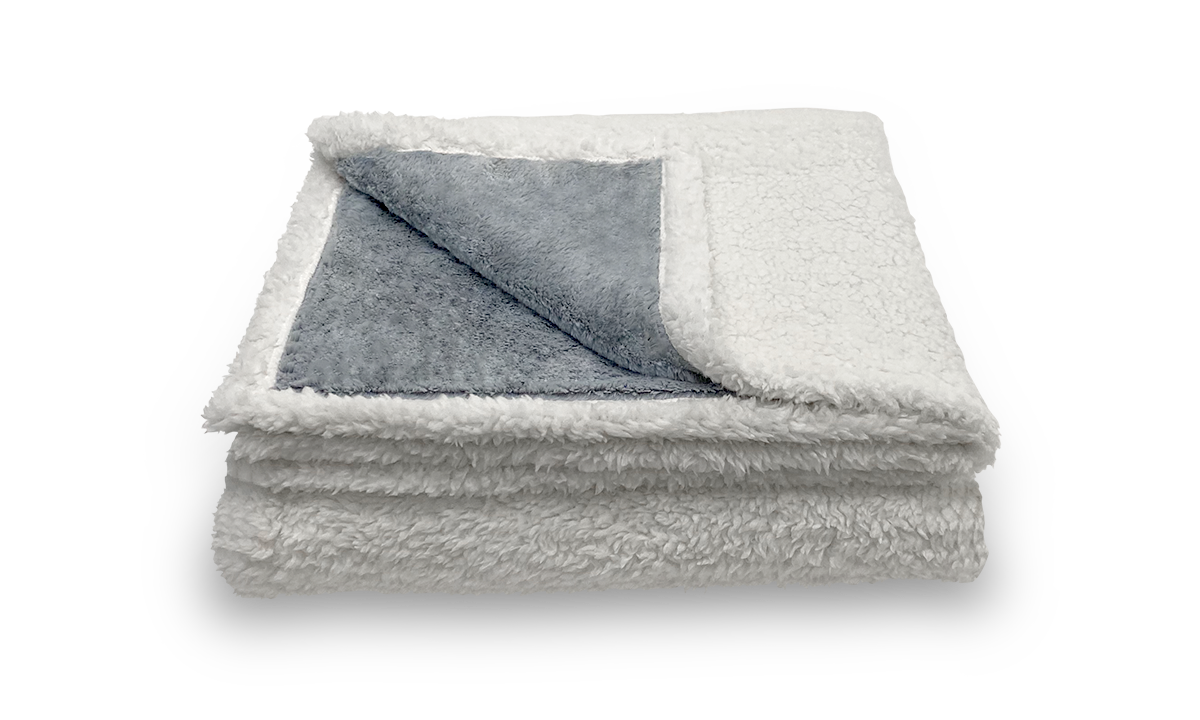Welcoming a newborn into your home comes with many joys and challenges, not least of which is ensuring you have all the right supplies. A receiving blanket is one of the first items you’ll likely use with your baby, serving multiple purposes from swaddling to providing a soft surface for lying down.
But what size should a receiving blanket be? This guide will help you understand the typical dimensions and how they can be used to keep your little one cozy and secure.
What is the Size of a Receiving Blanket?
Receiving blankets are designed with newborns and small infants in mind. The size of a typical receiving blanket varies slightly depending on the manufacturer, but most are square-shaped and measure around 30 inches by 30 inches.
This size makes the blanket versatile for various newborn care needs. Some brands offer larger sizes, often up to 40 inches by 40 inches, to cater to parents who prefer a larger blanket for swaddling as their baby grows.
Here’s a closer look at the dimensions:
- Standard Size: Approximately 30 inches by 30 inches.
- Larger Options: Some can go up to 40 inches by 40 inches for added versatility.
These dimensions are chosen to balance ease of use with functionality, ensuring that the blanket can cover and wrap a newborn adequately without being overly bulky or difficult to manage.
What is the Standard Size of a Receiving Blanket?
The standard size of a receiving blanket is about 30 inches by 30 inches. This size is considered ideal for several newborn-specific uses:
- Swaddling: The square shape and ample size allow parents to swaddle their baby securely, which can help soothe and comfort infants, mimicking the tight, enclosed feeling they experienced in the womb.
- Multi-functional: Beyond swaddling, this size is excellent for other uses such as a makeshift changing pad, a burp cloth, or even a nursing cover for privacy when breastfeeding in public.
This standard size is widely recognized and used because it serves the essential needs of newborn care effectively.
One million Americans are sleeping better with Puffy. Compare our award-winning mattress collection against other brands to learn why: Puffy vs Purple, Puffy vs Nectar, Puffy vs Casper, Puffy vs Leesa, Puffy vs Saatva, Puffy vs Dreamcloud, and Puffy vs Tuft & Needle.
Benefits of the Standard Receiving Blanket Size
The dimensions of the standard receiving blanket (30 inches by 30 inches) are specifically designed to offer several key benefits to both babies and their parents:
-
Ease of Swaddling: For new parents, swaddling can sometimes be a challenge. The standard size is large enough to securely wrap around the baby but small enough to handle easily, even for those new to swaddling.
-
Portability: The compact size makes these blankets incredibly portable. They can be easily folded and tucked into a diaper bag, making them a go-to item for on-the-go parenting.
-
Versatility: This size allows the blanket to be used for a variety of other purposes as the baby grows, such as a comfort item for toddlers or a light blanket for a preschooler during naptime.
-
Seasonal Adaptability: The fabric is typically lightweight, making it suitable for use across different seasons. During warmer months, it provides a light layer that can protect a baby from the sun or slight wind without overheating. In cooler weather, it can add an extra layer of warmth without being as heavy as larger blankets.
-
Cost-Effectiveness: Due to their standard size, these blankets are often less expensive than larger baby blankets, making them an economical choice for families.
-
Simplicity in Care: Typically made from materials like cotton, these blankets are easy to wash and dry, which is essential for maintaining hygiene given the frequent messes and spills associated with newborns.
Ensuring your baby is comfortable in their receiving blanket pairs perfectly with the comfort provided by a Puffy Lux Mattress for parents. After ensuring your little one is snug, parents can look forward to a restful sleep on a mattress designed for optimal support and comfort.
Additional Sizes and Uses
While the standard receiving blanket is quite functional, some situations might call for different sizes:
- Larger Sizes: Some blankets can be up to 40 inches square, which might be used for older babies or those who prefer a looser swaddle.
- Smaller Sizes: Occasionally, smaller dimensions are available, which are great for premature babies or as a lightweight summer blanket.
From my own experience, the versatility of the standard receiving blanket size has been invaluable. Whether it’s swaddling my newborn for sleep, covering up during breastfeeding for privacy, or providing a clean surface in public places, the receiving blanket has been a staple in my parenting toolkit.
Combining the practicality of a well-sized receiving blanket with the comfort of a Puffy Cloud Mattress can significantly enhance sleep quality for parents. After a long day of parenting, settling down on a mattress that offers cloud-like comfort ensures rejuvenating rest, essential for tackling another busy day with your baby.
Conclusion
The right size of a receiving blanket can make a big difference in your daily parenting life. Understanding the standard dimensions and how they can be utilized not only helps in selecting the right blanket but also in ensuring it serves its purpose well beyond the newborn stage.

- Oeko-Tex® Standard 100 certified.
- Hypoallergenic.
- Lifetime warranty.
- 101-night sleep trial.
- Free shipping and returns.












